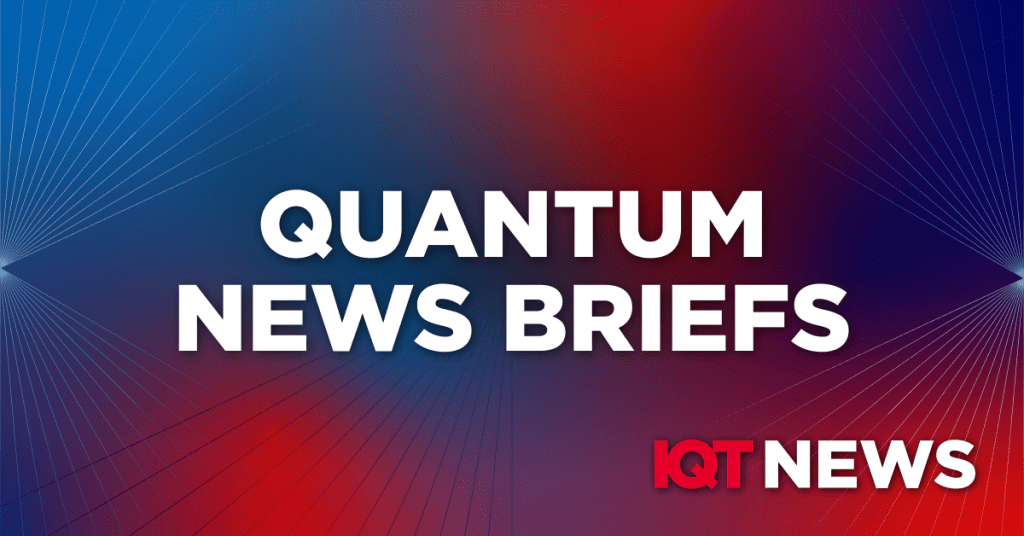Quantum News Briefs: April 30, 2024: press release summaries below:
University of Sydney awarded $18.4 million for national quantum centre
The University of Sydney, backed by a new $18.4 million grant from the Australian Government, is spearheading the establishment of Quantum Australia, a national center to leverage quantum technology’s potential. Recognizing Australia’s prowess in quantum research and computing patents, the initiative aims to bolster the quantum industry and foster collaboration between academia and industry. Led by Deputy Vice-Chancellor Professor Emma Johnston and supported by figures like Minister Ed Husic, the center will drive innovation, facilitate the growth of quantum startups, and advance Australia’s position in the global quantum economy. With partners like Macquarie University, UNSW, and the University of Technology Sydney, Quantum Australia builds upon the National Quantum Strategy, positioning Australia at the forefront of quantum technology development and application.
Nord Quantique Researchers design a physical qubit that behaves like an error-correcting “logical qubit”
Nord Quantique, a quantum computing startup, claims that quantum computers surpassing the capabilities of the fastest supercomputers might be nearer than anticipated. The company’s advancement lies in creating an individual error-correcting physical qubit, potentially slashing the number of qubits required for quantum advantage. By leveraging bosonic codes, they extend qubit coherence time by 14%, presenting a novel approach to error correction. Unlike traditional methods reliant on logical qubits, Nord Quantique’s technique integrates error correction directly into the hardware, promising a significant leap in computational power. While challenges persist, including additional physical qubits, Nord Quantique aims to unveil a system with multiple error-correcting qubits by fall, with plans for a 100-qubit quantum computer by 2028.
In Other News: Time article: “The U.S. Must Win the Quantum Computing Race. History Shows How to Do It”
The long-anticipated era of quantum computing appears to have dawned following breakthroughs in 2023, signaling the potential for a technological revolution with both positive and negative implications, highlights a recent Time article. Quantum computers, first conceptualized by physicist Richard Feynman in 1981, could revolutionize various fields, including drug development to combat cancer. However, they also pose a threat by potentially breaking encryption in everyday communications and financial transactions. As nations race for quantum dominance, reminiscent of past technological competitions, the U.S. risks losing its leadership position due to stalled funding efforts, contrasting with substantial investments by allies and adversaries. The outcome of this race holds significant implications for national security and cybersecurity, urging concerted efforts to sustain American preeminence in quantum computing and related technologies.
In Other News: The Conversation article: “Mind-bending maths could stop quantum hackers, but few understand it.”
According to a recent The Conversation article, as the specter of quantum computing looms nearer, cybersecurity concerns intensify, with experts warning of the potential for catastrophic breaches once powerful quantum computers come online. Unlike traditional computers, quantum machines could unravel encryption algorithms in a fraction of the time, sparking a global race to develop “quantum-proof” encryption methods. Recent advancements in quantum computing have prompted heightened efforts to bolster cybersecurity, including updates to encryption systems by tech giants like Apple and innovative defenses such as China’s “encryption shield” for quantum computers. Yet, challenges persist, exemplified by recent revelations of vulnerabilities in lattice-based encryption, underscoring the critical role of mathematics in both harnessing and defending against quantum technologies. As nations strive to secure their digital infrastructures, the imperative for deep mathematical expertise in the quantum era becomes increasingly evident, highlighting the need for concerted efforts to advance mathematical research alongside quantum development.
